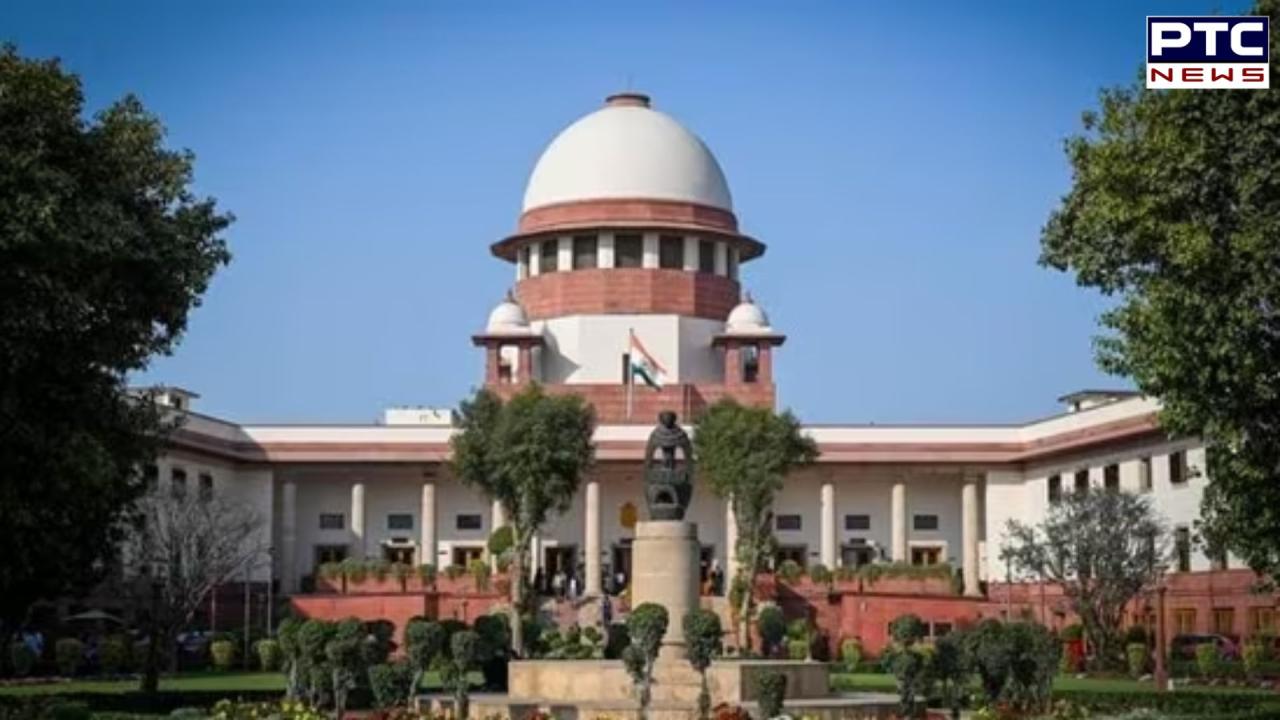

Supreme Court upholds validity of Citizenship Act's Section 6A
PTC Web Desk: : The Supreme Court has upheld the validity of Section 6A of the Citizenship Act, a provision introduced in the wake of the 1985 Assam Accord. A five-judge Constitution Bench, headed by Chief Justice of India (CJI) DY. Chandrachud, delivered the judgment on Thursday. The Bench also included Justices Surya Kant, MM Sundresh, JB Pardiwala and Manoj Mishra. While CJI Chandrachud and three other judges concurred with the decision, Justice JB Pardiwala expressed dissent.
Background on Section 6A
Section 6A of the Citizenship Act was introduced as part of the Assam Accord signed in 1985. Under this provision, Bangladeshi immigrants who entered Assam between January 1, 1966, and March 25, 1971, are eligible to register as Indian citizens. However, those who arrived after March 25, 1971, are not eligible for Indian citizenship.
Justice Surya Kant, addressing the court's decision, stated, "We uphold the constitutional validity of Section 6A. We cannot permit anyone to choose their neighbors, as it is contrary to the principle of fraternity. Our doctrine is to live and let live."
What Section 6A Entails
Section 6A was added to the Citizenship Act to address the citizenship status of those who came to India under the Assam Accord. According to this provision, individuals from Bangladesh or other neighbouring regions who arrived in Assam between January 1, 1966, and March 25, 1971, and have since resided there, must register for Indian citizenship under Section 18 of the Act. Consequently, this law set the cut-off date for granting citizenship to Bangladeshi immigrants in Assam as March 25, 1971.
Key developments during Supreme Court hearing
December 5, 2023: The Supreme Court began hearing 17 petitions related to Section 6A of the Citizenship Act, with a five-judge Constitution Bench taking up the matter. The case had been referred to the Bench in 2014. During the hearing, CJI Chandrachud remarked on India's significant role in the creation of Bangladesh, highlighting that India, like Bangladesh, was part of the conflict that led to illegal migration. The court noted the absence of evidence indicating that the grant of citizenship to migrants from 1966 to 1971 had adversely impacted Assam's demographic or cultural identity.
December 7, 2023: The court asked the Central Government to provide data on the citizenship status of Bangladeshi immigrants who entered Assam between January 1, 1966, and March 25, 1971. The government and Assam state were given until December 11 to respond. The Bench inquired about the number of individuals identified as foreigners under the Foreigners Tribunal Order of 1964 during this period and the current status of cases pending and resolved by the tribunals.
December 12, 2023: In response to the court's order, the Central Government submitted an affidavit stating that collecting precise data on illegal immigrants living in India was challenging. The affidavit noted that many immigrants enter India covertly without proper documentation, making it difficult to identify, detain, and deport them. The government also cited a lack of cooperation from neighbouring countries as a significant obstacle in completing border fencing along the India-Bangladesh border.
Timeline of the Case
2012: The Assam Sanmilita Mahasangha, a civil society group in Guwahati, challenged the constitutional validity of Section 6A, arguing that the provision was discriminatory, arbitrary, and illegal because it established different cut-off dates for regularising illegal immigrants in Assam compared to the rest of India.
2013: The Supreme Court directed the Assam government to update the National Register of Citizens (NRC).
December 17, 2014: The issue of citizenship in Assam was referred to a five-judge Constitution Bench.
April 19, 2017: The Supreme Court established a Bench for hearing the case.
July 30, 2018: The final draft of the NRC for Assam was released, excluding 40.07 lakh applicants out of a total of 3.29 crore, creating uncertainty over their citizenship. The Supreme Court later clarified that the draft NRC could not be used as a basis for any actions.
August 31, 2019: The final NRC list was published, excluding around 19 lakh people.
December 2023: The five-judge Constitution Bench heard the case over three days, reserving its decision.
The Supreme Court's ruling brings clarity to a long-standing issue concerning the status of immigrants in Assam and the implementation of the Assam Accord, which has remained a contentious subject for decades.
- With inputs from agencies
